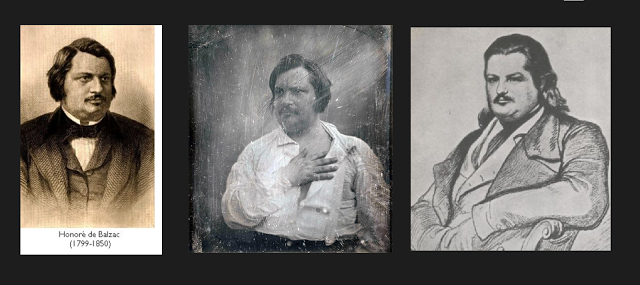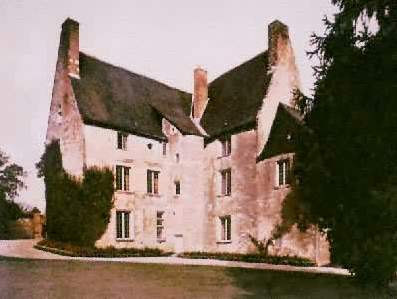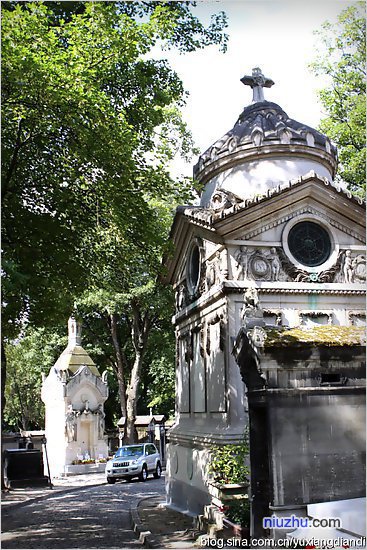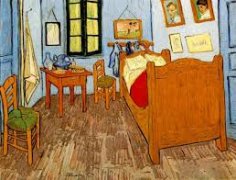French writer Zalbach is indispensable to writing, celebrities who love espresso.
Balzac, the great writer with an unparalleled status in French literature, is addicted to espresso, which is bitter enough to paralyze his stomach without milk or sugar. He once said, "I will die of 30,000 cups of coffee." According to statistics by some experts, he drank about 50,000 cups of espresso in his life.

Honore de Balzac (May 20, 1799-August 18, 1850) is a famous French writer in the 19th century, the highest achievement in French realistic literature, and Leo Tolstoy of Russia are called two epoch-making masters of realistic literature. His comedy é die Humaine has 91 novels and has written more than 2400 characters, which is known as the "encyclopedia" of French society. Balzac worked day and night for 20 years in order to complete the huge creative project of "Human Comedy". He used to go to bed at 6 o'clock every night, get up at 12:00, put on Santo Domingo's robes, light four candles, work 16 hours at a time, and write 20 hours a day in November 1834. George Saintsbury, Balzac's biographer, said, "No one can tell whether he is living or writing."

He made this analogy: "Coffee drives him to write continuously like an engine." Even this analogy was spread as a beautiful talk by people at that time. Balzac can't work without coffee. No matter where he goes to write, besides paper and pen, he always takes the coffee pot as the third necessity.
The coffee pot he carried with him was a kind of "special paper and some special form of pen" that he chose. After reading Stendhal's novel Balma Monastery, Balzac soon wrote Stendhal Studies and spoke highly of Balma Monastery. On the cover of the book is not only a coffee pot, but also Balzac's words: "this coffee pot supports me to write 16 hours a day and at least 12 hours a day."

There is a passage about coffee to Balzac: "after dinner, he began to prepare coffee that meant so much to him, a historic coffee that even Voltaire drank coffee that could not match." He is careful to brew the coffee and buy it himself, because the unprecedented coffee is made from a mixture of three different coffee beans: le bourbon, le moka and le martinique. First buy the first kind of coffee on the way to Mont Blanc, then buy the second kind of coffee on the way to the Sisters of Old Notre Dame, and finally buy the third kind of coffee on the University Road. After drinking coffee, he would go back to his room at about 8pm and force himself to fall asleep. He would be woken up at 12:00 by his servant and write every day until his untimely death.

Coffee allows Balzac to work 18 hours a day, constantly writing, revising and proofreading manuscripts, forcing himself to drink a lot of coffee a day. Even in the book on Modern Doping, one of the chapters discusses coffee and records in detail how to brew a high concentration of refreshing black coffee and share with readers his own experience and experience of drinking coffee for many years. Even Balzac has developed a terrible and cruel way of making coffee: "grinding, pressing, cold flushing, very little water, drinking on an empty stomach" to achieve a quick pick-me-up and lasting effect. He described that when such coffee entered the stomach, the coffee constantly strongly attacked the stomach wall, causing the stomach plexus to get angry, sending sparks to the brain. Then he described the role of coffee in his body very vividly, comparing his writing to "battle". Coffee, on the other hand, helped him lead the army to victory: "everything inside his body moved: his mind was shaken like a battalion of Napoleon's army on the battlefield."
Important Notice :
前街咖啡 FrontStreet Coffee has moved to new addredd:
FrontStreet Coffee Address: 315,Donghua East Road,GuangZhou
Tel:020 38364473
- Prev

Van Gogh Cafe introduces the connection between Van Gogh's paintings and the Cafe
Van Gogh (1853-1890) was born in the Netherlands on March 30, 1853. In his short 37 years of life, Van Gogh devoted his life to painting, leaving more than 1200 paintings and 1200 sketches. It is constantly admired by future generations and urged Van Gogh's grandfather and father to work as priests. At the age of 19, Van Gogh was already at the Guber Gallery branch in the Hague.
- Next

Smart Coffee comes again to attack traditional Coffee where to go from the Master of Coffee at Home
Zhongxin, Chinanews.com, Nov. 17 / PRNewswire-FirstCall-Asianet / (Reporter Zheng Xiaohong) at the hard egg booth of the 19th High-tech Fair, visitors can place an order for AI coffee to the robot (19.380,-0.94,-4.63%) by voice command. The AI coffee robotic arm automatically completes all the steps of coffee grinding, brewing and delivery. After a while, it will be full of wisdom.
Related
- Beginners will see the "Coffee pull flower" guide!
- What is the difference between ice blog purified milk and ordinary milk coffee?
- Why is the Philippines the largest producer of crops in Liberia?
- For coffee extraction, should the fine powder be retained?
- How does extracted espresso fill pressed powder? How much strength does it take to press the powder?
- How to make jasmine cold extract coffee? Is the jasmine + latte good?
- Will this little toy really make the coffee taste better? How does Lily Drip affect coffee extraction?
- Will the action of slapping the filter cup also affect coffee extraction?
- What's the difference between powder-to-water ratio and powder-to-liquid ratio?
- What is the Ethiopian local species? What does it have to do with Heirloom native species?

